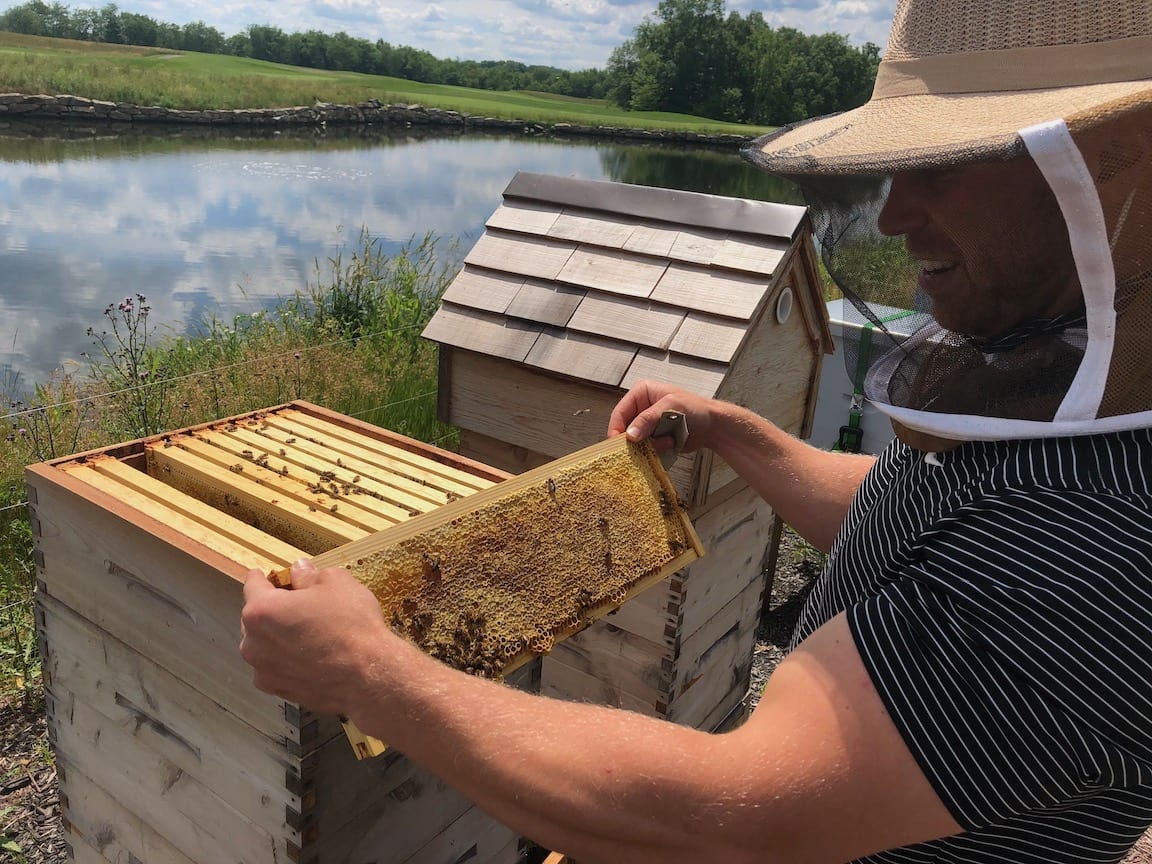
Gardening Green with Doug - Keeping the Buzz Alive
by Doug Oster
![]()
June 24, 2020
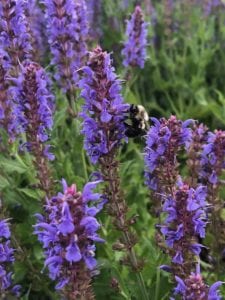
Mason Miller is doing his best to keep me safe from a bird, determined to protect its nest, as it swoops down within inches of his head. I’m on my knees photographing bees feeding pretty blue salvia flowers in the Cranberry Highlands Community Apiary.
Miller is industrial pretreatment administrator of Cranberry Township. His job is to make sure the wrong things don’t make it into the wastewater treatment plant. The long-time beekeeper has also created this place adjacent to the Cranberry Highlands Golf Course for other beekeepers to place their hives, and there’s also an ever expanding pollinator garden here, too. The golf course is designated by Audubon International as a Certified Audubon Cooperative Sanctuary. This is Pollinator Week, a time to celebrate and inform about the good bugs and why they are so important.
The area north of Pittsburgh is growing rapidly and it’s harder to find a home for the hives. There’s a feeling of exhilaration watching him inspect a hive. I’m wearing a jacket and veil as I photograph him working the bees, all he has on is the veil and a short-sleeved shirt. It’s a lesson in how docile these bees are as he looks carefully at the insects crawling over the foundation of the frame. He gently slides it back in the hive, then returns the cover without even one sting. “It’s beneficial to the public to learn about their pollinators and how important they are,” he says, “but it’s also beneficial to our agricultural industry. I don’t think many folks know the food they eat every night comes from these pollinators.”
Beside the nine honeybee hives, Miller plans to install nesting sites for native pollinators, too.
The plantings in the pollinator garden include the salvia, Shasta daisies, coneflower, annual flowers, spirea, and many more plants for the good bugs. The space is meant to be educational as it heads into its second season. All that’s required for adding your own hive here is to show that you’ve taken a beginning beekeeping class.
It’s important to know some bee biology, Miller says, to keep the bees healthy. He hopes to grow the apiary to about 25 hives. “Honeybees are a serious endeavor,” he says. “You are responsible for that hive now, you’ve got to make sure it prospers.”
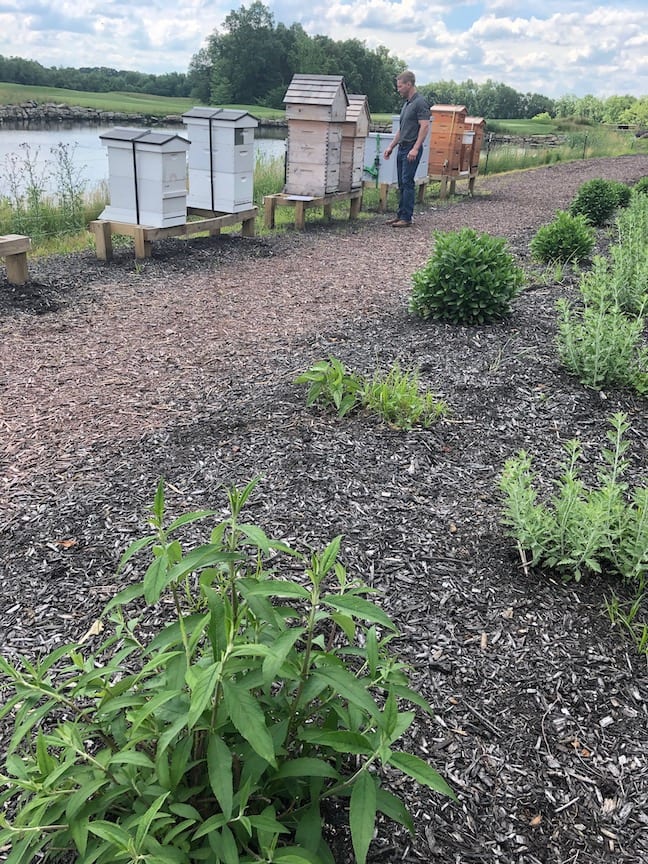
Miller learned beekeeping from his grandfather, George, who taught him the ins and outs of the hobby as a young boy. “He brought me in there and that was it,” Miller remembers. “He really peaked my interest.” As he walks towards the fence that surrounds the apiary he talks fondly of his grandfather. “I always think of my pap,” he says quietly, “with everything I do. He’s taught me a lot in my lifetime.”
For gardeners not able or interested in raising colonies of bees, Miller recommends attracting native, solitary bees by adding habitat, water, and shelter. These non-aggressive species will help the garden by moving pollen from flower to flower.
“I hope they go home excited about pollinators and not thinking it’s the end of them,” Miller says of visitors to the apiary. “And everybody can realize that there’s something they can do within their own yards to help pollinators and make them prosper.”
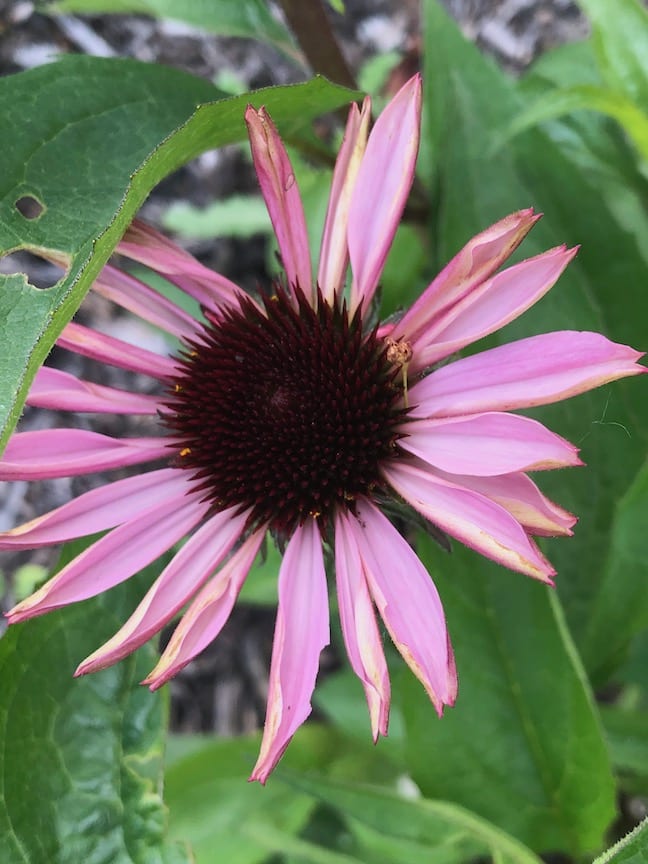
There will be an open apiary day on Sunday, July 19, 2020 at 10 a.m. at the Cranberry Highlands Community Apiary. I’ll be speaking about what you can do to make your yard, garden, and landscape more pollinator friendly. Miller will give tours of the hives (with protection) and the garden. The event is free of charge; donations are welcome.
Call to RSVP 724-776-4806 ext. 1513. Find out more here. The Cranberry Highlands Community Apiary is located at 5604 Freshcorn Road, Cranberry Township, PA 16066.
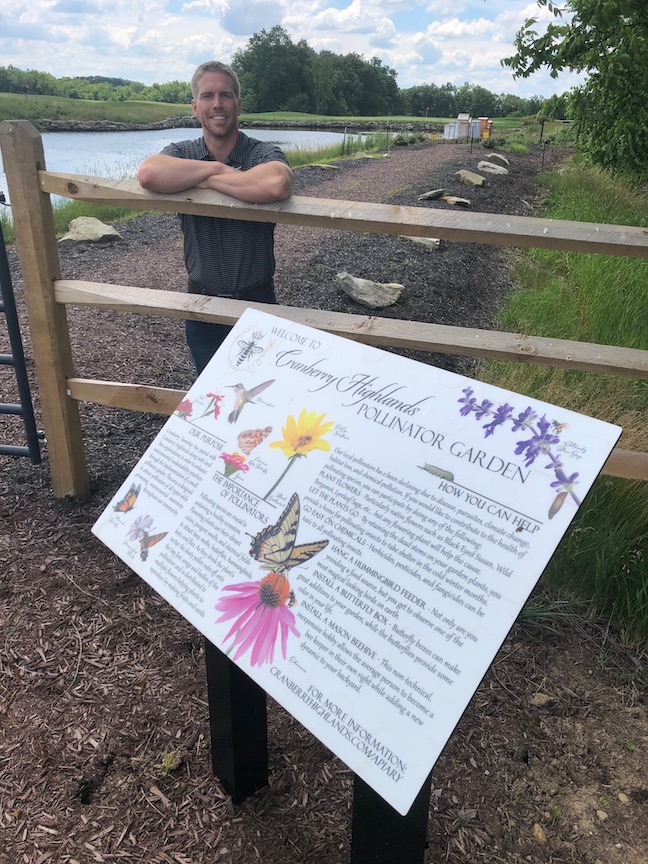
![]()

Leave A Comment